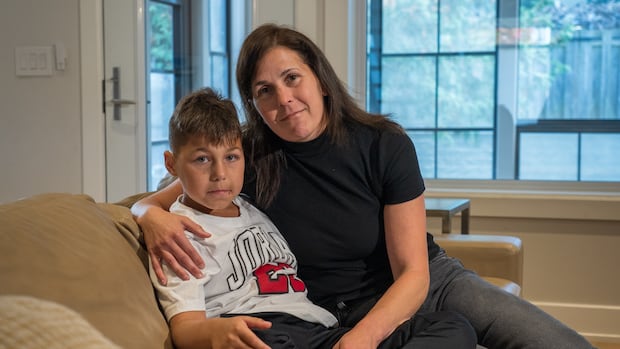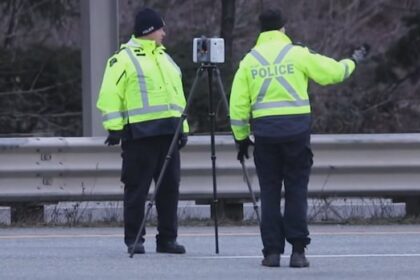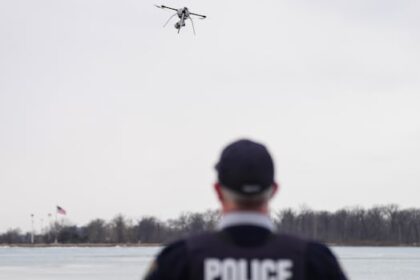OttawaA mother is sharing the devastation she felt watching her newborn son develop respiratory syncytial virus (RSV) and urging Ontario parents to get a newly available preventative treatment for their babies.Eitan Cohn developed RSV at less than a month old, spent 2 weeks in hospitalKimberley Molina · CBC News · Posted: Oct 14, 2025 4:00 AM EDT | Last Updated: 2 hours agoMom warns of devastating effects of respiratory syncytial virusAn Ottawa mother learned RSV can have severe impacts on children, after her son ended up intubated at the hospital years ago. She’s sharing her story as the weather gets colder, to prevent it from happening to others.A mother is sharing the devastation she felt watching her newborn son develop respiratory syncytial virus (RSV) and urging Ontario parents to get a newly available preventative treatment for their babies.RSV is a common virus that affects the lungs. It’s most prominent in children under the age of five, especially newborns, and can cause fever, irritability, breathing difficulties and decreased appetites.“For a little baby that can’t cough it out, that can’t blow their nose, [it] can be catastrophic,” said Jessica Cohn, the mother of now 10-year-old Eitan.When Cohn heard a muffled cough through the baby monitor when he was about three weeks old and noticed he wouldn’t settle down, she took him to CHEO, the children’s hospital in Ottawa.That was where she was told he had RSV and his symptoms would likely get much worse.Two days later and two more visits to CHEO, her baby was hooked up to machines to help him breathe, and his parents were left fearing for his life.50 per cent of babies with RSV hospitalizedCohn remembered how one night, when Eitan had already been sick for nine or 10 days, doctors and nurses crowded into his room.“I’m like, ‘What’s going on?’” she recalled. “And there’s all this like talk and chatter, and they said to me, ‘He’s really not doing great right now. We might have to intubate.'”Doctors opted not to, and his health started to improve the next day. By that time he’d spent nearly half of the first weeks of his life in hospital.“Fifty per cent of RSV cases are hospitalized in the first six months of age, and it’s devastating for families with young children to be in hospital and to watch them suffer through it,” said Dr. Darine El-Chaâr, a maternal fetal medicine specialist at The Ottawa Hospital and one of the authors of a report by the Federation of Medical Women of Canada (FMWC) on RSV.“There could be long term effects as well. And we know that it’s associated with asthma and wheezing and chronic lung diseases later on — and so preventing it would mean hopefully reducing that burden later on in life.”RSV can cause other infectionsA study done by the FMWC shows RSV is the predominant cause of most lower respiratory tract infections, up to 80 per cent of cases of bronchiolitis — a common lung infection in children — and 40 per cent of pneumonia cases in infants.The paper also pointed to another Canadian study which found nearly one-quarter of children who ended up in hospital with RSV needed to be admitted to the intensive care unit.There are three ways infants can be protected against the illness, however: through a vaccine given to mothers in their third trimester, from antibodies passed along if the mother is ill with the virus, or from an antibody newborns are given directly.Dr. Darine El-Chaâr says the availability of both the vaccine and the antibody meant there were fewer babies with RSV admitted to hospital last year. (The Ottawa Hospital Foundation)That third option, called nirsevimab (and sold as Beyfortus), was made available last year in Ontario to all infants. But according to El-Chaâr, one of the difficulties with getting nirsevimab to babies is because, while the product is approved by Health Canada, it’s up to each individual province and territory to roll it out.Ontario and Quebec are providing nirsevimab to all newborns, as do the territories. Some provinces also began offering it this fall, while others provide a different antibody for infants called palivizumab — one that’s given monthly instead of once, El-Chaâr said.According to the National Advisory Committee on Immunization, RSV causes up to 16 times more hospitalizations among young children compared to the flu, while the Canadian Immunization Guide shows nirsevimab reduces RSV hospital admissions 81 to 83 per cent.The data shows nirsevimab works, El-Chaâr said.Eitan Cohn is now a healthy 10-year-old boy who spent two weeks of his life in hospital, starting when he was less than a month old. (Francis Ferland/CBC)As for Cohn, she’s thankful her son made it out of the hospital without any serious complications.“We’re in a time where there’s options, there’s ways to prevent these babies from getting so sick. So [it’s important] to educate yourself as a new parent, know your options, know they exist,” she said.”As a new parent, you want to be home with your baby. You want to be enjoying it. You don’t want to see that baby hooked up to tubes and machines.”ABOUT THE AUTHORKimberley Molina is a reporter with a focus on health-related stories for CBC Ottawa. She can be reached at kimberley.molina@cbc.ca.Twitter
Thursday, 5 Mar 2026
Canada – The Illusion
Search
Have an existing account?
Sign In
© 2022 Foxiz News Network. Ruby Design Company. All Rights Reserved.
You May also Like
- More News:
- history
- Standing Bear Network
- John Gonzalez
- ᐊᔭᐦᑊ ayahp — It happened
- Creation
- Beneath the Water
- Olympic gold medal
- Jim Thorpe
- type O blood
- the bringer of life
- Raven
- Wás’agi
- NoiseCat
- 'Sugarcane'
- The rivers still sing
- ᑲᓂᐸᐏᐟ ᒪᐢᑿ
- ᐅᑳᐤ okâw — We remember
- ᐊᓂᓈᐯᐃᐧᐣ aninâpêwin — Truth
- This is what it means to be human.
- Nokoma











